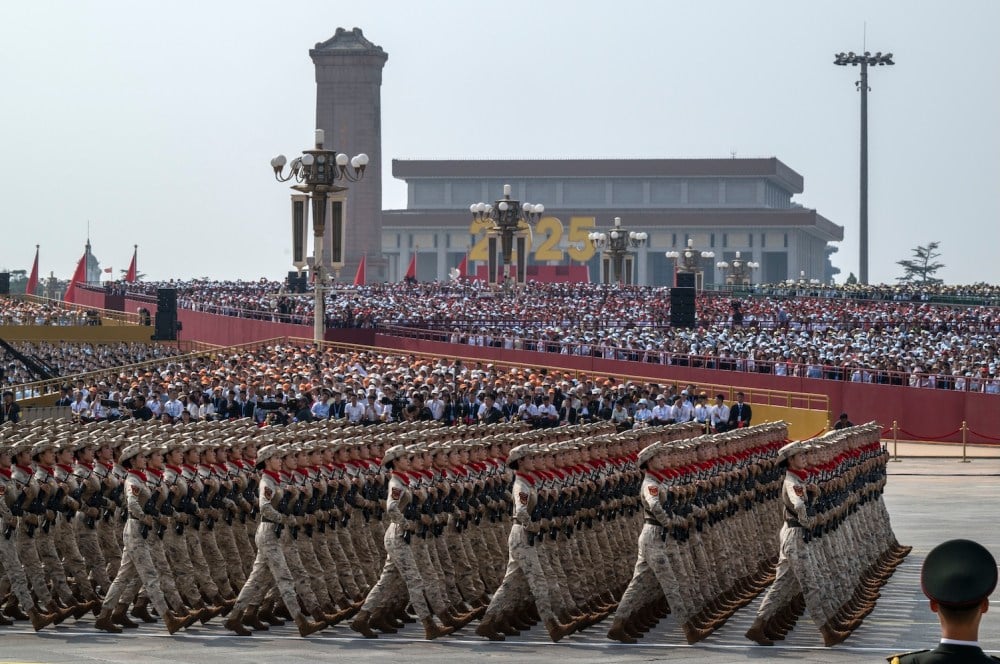Leading military analysts predicted that Russia would easily roll over Ukraine in February 2022. They also forecast that any strike on Iran’s nuclear facilities would lead to devastating retaliation and a regionwide war. Now, they tell us that Beijing’s rapid military buildup will make it difficult for the United States and its allies to defeat a Chinese attack on Taiwan.
Are they wrong about this, too?
As Russia and Iran reveal, autocracies have systematic weaknesses that are consistent blind spots for U.S. military analysts. U.S. analysts need to update their belief system to take autocratic vulnerabilities into account so that they can more accurately assess adversary forces and design appropriate strategies for confronting them.
In 2020, I published a book about democracies versus autocracies in great-power rivalries that reviewed cutting-edge social science research and 2,500 years of history. I found that both political systems have strengths and weaknesses but, on balance, democracies are more fit for great-power rivalry and autocracies have recurring and systemic flaws.
As it relates to military performance, dictators often make uninformed decisions on issues of war and peace because they are surrounded by “yes men” who tell them what they want to hear. Political and ideological meddling and corruption in military matters undermine battlefield effectiveness. Military officers in dictatorships lack the autonomy and human capital to take initiative on the battlefield. Aggressive dictators struggle to build deep and trusting alliances and instead tend to provoke other nations to assemble strong counterbalancing coalitions against them. Finally, dictators are more afraid of their own people than foreign enemies and spend more time and attention on domestic repression than victory in international conflict.
Yet Western analysts often overlook these vulnerabilities. Worse still, they imagine (often illusory) autocratic advantages, such as a penchant for ruthlessness, long-term planning, and bold action. In short, they picture U.S. adversaries as 10 feet tall.
In February 2022, for example, U.S. government analysts predicted an easy Russian victory over Ukraine. Instead of planning to defend Ukraine, the Biden administration initially offered to extricate Ukrainian President Volodymyr Zelensky from the country, resulting in his now-famous quote, “I need ammunition, not a ride.”
As Philip Davies, the director of the Brunel Centre for Intelligence and Security Studies in London, told Radio Free Europe/Radio Liberty, “It’s easy to look at an adversary on paper. … You can count up all the tanks and armored fighting vehicles, and the aircraft and what have you, and add up the balance sheet—who’s got more on one side or the other,” adding, “But the willingness to use it, the ability to use it, and the skill in using it: You can’t see that in a satellite photograph.”
In fact, Russian President Vladimir Putin’s initial decision to invade Ukraine was the result of “yes men” telling him what he wanted to hear. Remember the televised display of Putin’s top national security officials advising him to invade one by one? As a result of this systematic sycophancy, Russia adopted a flimsy military plan for a lightning strike on Kyiv that rested on rosy assumptions about Ukraine resistance melting away.
Instead of taking initiative, Russian officers waited for orders from above. This forced Putin to send flag officers to direct the military’s movements on the battlefield, where they were killed in large numbers. More than 10 Russian flag officers have been killed in Ukraine due to this command and control problem. Exacerbating this were Russia’s kleptocratic economy and deep-rooted corruption, which led to widespread procurement and logistics failures.
Three and a half years later, Russia’s supposed cakewalk over Ukraine has instead bogged down into trench-style warfare in eastern Ukraine with more than 1 million Russian casualties.
We saw a similar failure when it came to mainstream assessments of an Iranian response to a U.S. or Israeli strike on Iran’s nuclear program. Analysts on both the right and the left dreamed up worst-case scenarios of the consequences of a war with Iran. In 2012, Colin Kahl, a former top U.S. defense official, wrote that the “picture of a clean, calibrated conflict is a mirage. Any war with Iran would be a messy and extraordinarily violent affair, with significant casualties and consequences.”
But instead, Iran’s military response was compromised by its autocratic shortcomings. Poor planning led to Iran’s supposedly deep and hardened nuclear facilities to include ventilation shafts, which were likely turned into highways for U.S. bunker-busting bombs. Fears of regime collapse led Iran’s supreme leader, Ayatollah Ali Khamenei, to seek immediate de-escalation rather than a regionwide war with his superpower enemy. And when Tehran needed them most, Iran’s supposed allies in Moscow and Beijing were nowhere to be found.
Now, many analysts are predicting that the United States will not be able to stop a Chinese invasion of Taiwan. Defense One, citing a congressional study, recently warned that the United States “might lose a war with China.” This builds on many reports about the United States losing to China in a wide range of Pentagon wargames. According to analyst Bonnie Glaser, speaking to the Times, “Every simulation that has been conducted looking at the threat from China by 2030 have all ended up with the defeat” of the United States.
These predictions are concerning to be sure, but they risk overlooking China’s autocratic weaknesses. We see that China’s autocratic system is already interfering with its performance in other arenas of great-power competition. Chinese President Xi Jinping’s desire to reassert state control over China’s society and economy has already killed off the country’s successful economic growth model. His aggressive foreign policy has resulted in counterbalancing, with even the European Union declaring Beijing a “systemic rival” in 2019.
These autocratic dysfunctions are also affecting China’s military performance, as we know they have in the past. In 1968, for example, China’s leading missile engineer was killed by an anti-intellectual mob during Mao Zedong’s Cultural Revolution.
Today, Xi is more concerned about regime instability than foreign enemies and spends more money on domestic repression than on the military. A concern with ideological purity has led to the insertion of Chinese Communist Party (CCP) representatives and indoctrination in military units taking time and focus away from training and exercises. Corruption is also infecting China’s military procurement, for example when concerns about the reliability of the country’s missile inventory led Xi to conduct a far-reaching purge of Rocket Force officers.
What’s more, nuclear deterrence theory dictates that China should be investing in survivable submarines. But instead, China’s rapid nuclear expansion is prioritizing ground-based missiles in fixed silos, which are highly vulnerable to an enemy first strike. This does not make sense unless one considers the autocrat’s predictable preference for control over performance. Dictators have more control over warheads in centralized depots and ground-based missiles within their own territory. They do not trust sending young sailors to sea armed with nuclear weapons. While the United States debates eliminating the ground-based leg of the nuclear triad in favor of submarines, dictators such as Xi and Putin have always prized the more controllable ground-based missiles as the central pillar of their nuclear forces.
The Russia and Iran cases show that there are dangers to overestimating foreign threats. Had Washington correctly assessed Russian power, perhaps the Biden administration would have done more earlier to help Kyiv not just resist but defeat Russian forces in Ukraine in the spring and summer of 2022. Perhaps consecutive administrations could have put a more credible military option on the table to coerce Tehran into a more effective nuclear deal that would have stopped, not merely delayed, its nuclear program.
Correctly evaluating the threat from China today matters greatly for U.S. strategy. For example, if China is weaker than some think, then denying a Chinese attack on Taiwan could be a viable military objective. Others argue that the United States must disengage from Europe and the Middle East to focus on the greater threat from China. But if China is less powerful than these analysts think, then Washington may still be able to secure important interests across all three regions. Similarly, some argue that in its competition with the CCP, Washington should aim for detente. But if China is weaker than they think, then perhaps the goal should be outright victory, as in the Cold War.
China is undeniably a serious threat, perhaps the greatest the United States has ever faced. It would be foolish to underestimate the risks it poses. But it would be equally foolish to overestimate the threat, which can lead to equally bad strategy and policy.
The post Are We Overestimating Autocracies? appeared first on Foreign Policy.




